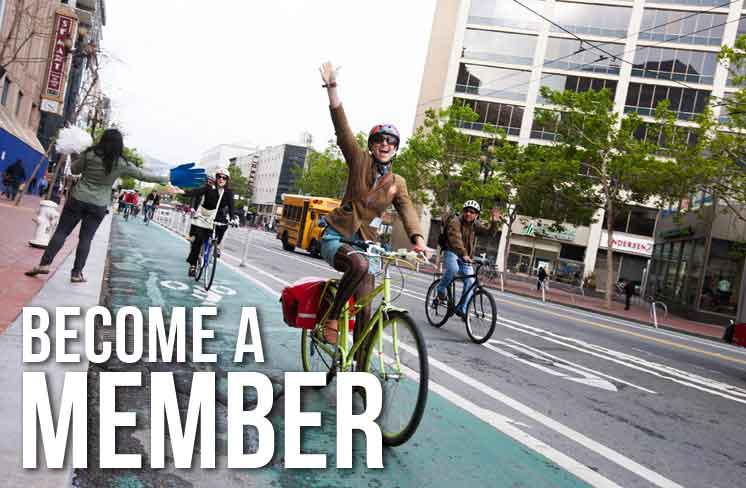In a crucial decision for people across California who ride bikes, the state Supreme Court has ruled that a San Francisco man who was gravely injured in a crash in Oakland may sue the City for negligence, despite having signed a liability waiver. The case, Whitehead v. City of Oakland, stems from a 2017 incident in which Ty Whitehead was severely injured after hitting a pothole on Skyline Boulevard while participating in a training ride for AIDS/LifeCycle. Whitehead sued the City of Oakland for failing to maintain its roads in a condition safe for people biking. Oakland claimed that the waiver Whitehead had signed to participate in the ride relieved them of liability for his injuries.
The unanimous ruling in Whitehead’s favor states unequivocally that cities have a statutory duty to maintain public roads in a reasonably safe condition for all users, no matter their chosen mode. In the Court’s opinion, Justice Kelli Evans emphasized that waivers cannot excuse a city’s legal obligations to ensure road safety.
The San Francisco Bicycle Coalition, along with CalBike and Bike East Bay, submitted an amicus brief supporting Whitehead’s case, authored on behalf of the organizations by SF bicycle attorney Shaana Rahman. The brief highlighted that a ruling in favor of Oakland would set a dangerous precedent, potentially allowing cities to avoid responsibility for hazardous road conditions. Such a stance would undermine street safety, jeopardize organized bicycle rides and classes (such as the dozens of free bicycle education classes offered by SFBike and Bike East Bay each year), and discourage the public from participating in cycling activities or riding a bike at all.
This decision is a significant victory not only for Whitehead, but also for the statewide cycling community, because it reinforces the principle that public entities must be held accountable for unsafe infrastructure. It sets a precedent that cities must prioritize road maintenance and safe conditions for the most vulnerable road users or be held liable, ensuring that cyclists are not unfairly saddled with the consequences of poorly maintained streets.
“This decision is a win not just for one rider, but for every Californian who uses a bike to get around,” said the brief’s author, Shaana Rahman, in a post on her firm’s website. “It sends a clear message that cities must take their responsibilities seriously—especially when it comes to keeping cyclists safe.”
One of the lawyers who argued the case for Whitehead, Anthony Label of the Veen Firm, said, “Oakland’s roads are notoriously bad for cyclists, and the city has done far too little to meet even minimum safety standards.” He continued, “This landmark decision by the California Supreme Court will ensure that cyclists like Ty, in the Bay Area and throughout the state, will be able to hold public entities accountable when they fail to maintain safe infrastructure. It will also encourage these entities to keep their roadways safe instead of trying to hide behind overbroad releases.”
Support vital advocacy like this by becoming a member of the SF Bicycle Coalition today. Already a member? Show your dedication by donating today.


